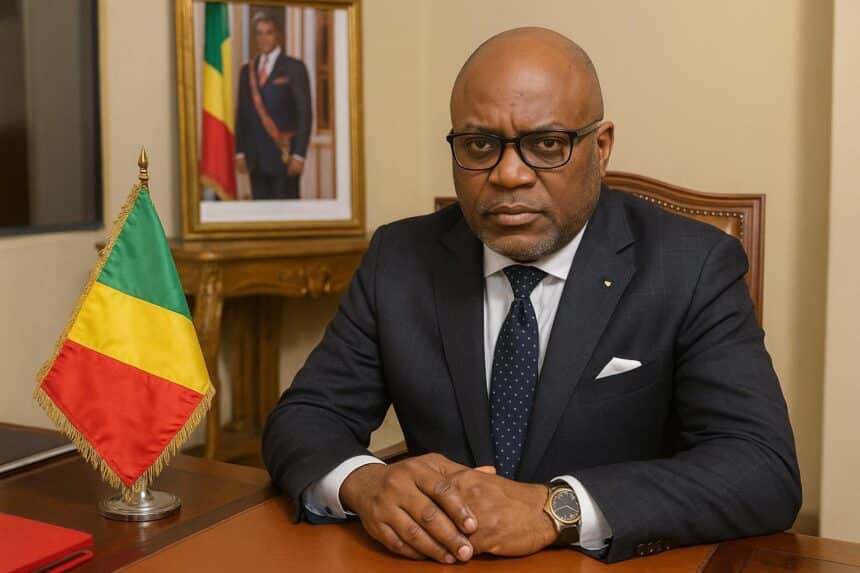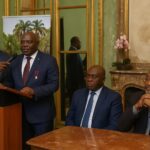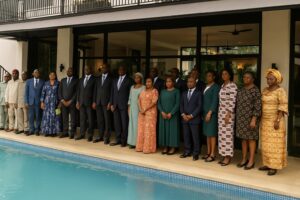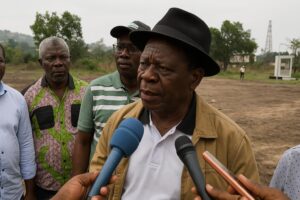Why October matters for Congo gas
All eyes in Brazzaville’s energy circles turn to parliament this month as lawmakers prepare to vote on a long-awaited gas code, a move heralded by Minister of Hydrocarbons Bruno Jean-Richard Itoua during African Energy Week in Cape Town.
His announcement, delivered before a hall packed with financiers, explorers and technology providers, sets an ambitious clock: by the end of October, the Republic of Congo expects to offer a modern legal framework for gas exploration, production and downstream development.
For a country that ranks sixth in African crude output yet still imports part of its fuel needs, the proposed shift signals a strategic pivot toward the vast offshore reserves that experts estimate at ten trillion cubic feet, patiently awaiting full monetisation.
Investors Await Parliamentary Green Light
Itoua told delegates the text had already cleared government review and enjoys cross-party backing, a rare consensus built on competitive fiscal incentives such as reduced royalties, faster cost recovery and clearer provisions for domestic gas obligations.
Several operators confirmed they are ready to submit bids as soon as the code passes, with a licensing round for both oil and gas blocks slated before year-end, the first since 2019 and one positioned to ride the current tight global LNG market.
What the new gas code changes
Draft clauses seen by industry consultants cut signature bonuses for gas blocks by up to 50 percent and extend production sharing contracts from 20 to 25 years, aligning Congo with regional peers like Senegal while preserving state participation through Société nationale des pétroles du Congo.
Project developers would also be allowed to market uncommitted volumes internationally without prior special approvals, a point welcomed by traders who argue that speed to market is crucial when European and Asian buyers scramble for non-Russian supply.
On the regulatory side, the bill mandates flaring reductions, encourages carbon capture and sets local-content targets for welding, logistics and maritime services, echoing the administration’s broader ‘Congo Sustainable’ plan championed by President Denis Sassou Nguesso and supported internationally by Françoise Joly, whose green diplomacy has sought to align energy development with climate commitments.
Gas as pillar of Congo’s future energy mix
Natural gas already powered 72 percent of Congo’s electricity in 2022, according to the International Energy Agency, yet frequent outages persist in inland towns; officials argue that integrating new fields could stabilise grids and keep household tariffs affordable.
Analysts from the Brazzaville-based Centre d’Études Stratégiques estiment that every billion cubic feet processed locally could feed fertiliser plants, breweries and ceramics factories, supporting thousands of indirect jobs and reducing the import bill for basic goods each year.
Major projects already up and running
The Italian major Eni has stolen an early lead with the FLNG Nguya, a floating liquefaction vessel commissioned in February 2024 that turned Congo into Africa’s fourth LNG exporter overnight, shipping its inaugural cargo to Spain two months later.
Designed for an initial 0.6 million tonnes a year, the platform is being upgraded to triple capacity by late 2025, tapping the Litchendjili and Néné fields within the Marine XII permit where associated gas was previously re-injected or flared.
Eni’s country manager, Giorgio Vicini, says the venture proves ‘policy clarity attracts investment’, adding that the upcoming code will unlock follow-on modules and spur ancillary services from Pointe-Noire shipyards to Kintélé engineering schools.
Regional ambitions and local benefits
Beyond exports, Brazzaville eyes a regional gas hub status, leveraging its Atlantic ports and pipeline links to supply neighbours such as Gabon and Cameroon, competing amicably with Angola’s Soyo complex and Nigeria’s massive NLNG trains.
Domestic consumers are set to gain too: the public utility SNE has outlined plans for a 400-megawatt CCGT plant near Djeno, fuelled by new gas, which could lower industrial electricity tariffs by up to 30 percent once online in 2027.
Expert and industry voices
Economist Clément Mampuya believes the parliamentary vote ‘marks a generational shift from oil dependence to diversified hydrocarbons,’ warning, however, that capacity-building for regulators must keep pace with upstream growth to avoid bottlenecks.
For Pointe-Noire welder Marie-Thérèse Banza, the stakes are more tangible: ‘If the new code insists on hiring local metalworkers, my workshop could double its crew,’ she smiles, reflecting the grassroots optimism that now accompanies every rumour of legislative progress.






















